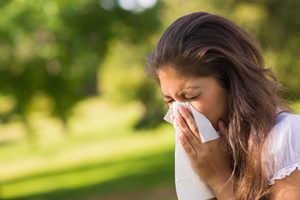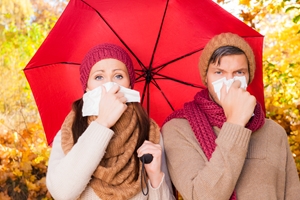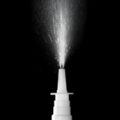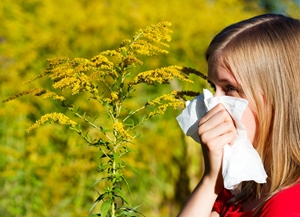
Ragweed season is in full bloom which means the 35 million Americans who suffer from the allergen are likely making one of their top searches in Google, "how to manage ragweed symptoms."
Don't worry, we have you covered. Before trying out techniques to manage allergies, you should know a little about them. This will help you put together a comprehensive allergy-fighting plan.
Here are three facts about allergies and preventive strategies you should know:
1. Take medicine before allergy season begins
If you know you're allergic to ragweed, make sure to start taking antihistamines well before they begin to affect you. Dr. Ownby of the Medical College of Georgia Health System says, "the problem I see with most people is they wait until their symptoms are very bad and then try to take an antihistamine… If you wait until it's really going, it gets very difficult to stop."
Although ragweed season has begun, it may not be too late to start taking antihistamines now. If you suffer from allergies year round, it's not a bad idea to take medicine year round as well.
2. Give your body enough time to adjust to antihistamines
Let your body slowly adjust to allergy medicine. The first time you use nasal spray, you may not notice an improvement in your stuffy nose. In a couple of weeks, however, you should.
Also, if you find that antihistamines make you drowsy, don't use too much at once. Dr. Ownby says that "for Benadryl, the normal dose for an adult is 25 to 50 milligrams three to four times per day." Instead of taking 50 milligrams of Benadryl the first time you use it, consume only 25 milligrams once a day. Over the next few days, increase your dosage by 25 milligrams until you're at the maximum dosage.
3. Allergens can easily enter your home
Is your home well secured? Maybe from intruders it is but likely not from dust and pollen particles which can easily enter through cracks in your door, windows or walls. They can also find their way inside through damaged vents or air conditioning filters.
Always make sure the vents of your AC are covered in cloth to filter pollen. They should also be high efficiency particulate air filters and cleaned regularly.
For more information on proper allergy management techniques and allergy control products, visit Allergy Be Gone today.









